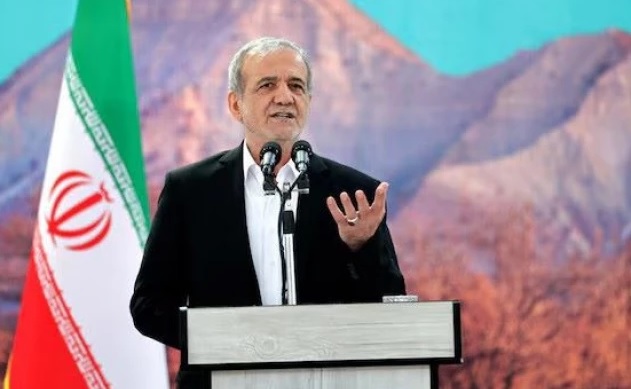Iranian President Masoud Pezeshkian has called on the UN nuclear watchdog to abandon its “double standards” before Tehran resumes cooperation over its nuclear program, state media reported Thursday. The demand comes after Iran suspended collaboration with the International Atomic Energy Agency (IAEA) last week, prompting the withdrawal of the agency’s remaining inspectors. Tensions between Iran and the IAEA escalated following U.S. and Israeli airstrikes on Iranian nuclear facilities in June, which Washington and Tel Aviv claimed were aimed at preventing nuclear weapons development. Iran insists its nuclear activities are peaceful and denies pursuing atomic weapons.
In a phone call with European Council President Antonio Costa, Pezeshkian stressed that future cooperation with the IAEA hinges on the agency addressing what Tehran sees as biased treatment. “The continuation of Iran’s cooperation with the agency depends on the latter correcting its double standards regarding the nuclear file,” he was quoted as saying. The Iranian president also warned that any further aggression against the country would trigger a “more decisive and regrettable response,” referencing the recent conflict sparked by the bombing of its nuclear sites. Tehran accuses the IAEA of failing to condemn the U.S. and Israeli attacks, alleging the agency enabled the strikes by declaring Iran in violation of non-proliferation commitments.
The June airstrikes led to a 12-day war, during which Iran retaliated with drone and missile strikes against Israel. Since then, IAEA inspectors have been barred from monitoring Iran’s nuclear facilities, despite Director General Rafael Grossi calling access his top priority. Pezeshkian criticized the IAEA for lacking impartiality, stating that its credibility is undermined by “failure to observe the principle of impartiality in reporting.” The standoff raises concerns about the future of nuclear oversight in Iran, particularly as Western nations push for stricter enforcement of non-proliferation rules.
The diplomatic rift complicates efforts to revive the 2015 nuclear deal, which collapsed after the U.S. withdrew in 2018. While Iran has repeatedly denied seeking nuclear weapons, its reduced transparency with the IAEA has fueled suspicions among Western powers. The agency’s inability to inspect facilities also hampers verification of Iran’s compliance with nuclear safeguards. As tensions persist, the international community watches closely to see whether Tehran and the IAEA can bridge their differences—or if the dispute will further destabilize an already volatile region.














